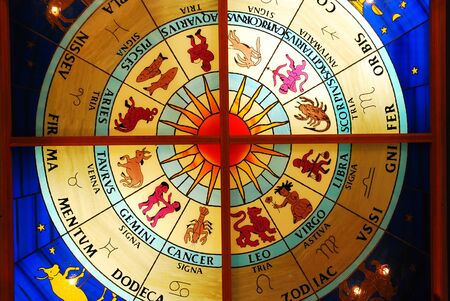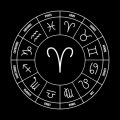1. Introduction: Astrology and Mindfulness in British Life
In recent years, the United Kingdom has witnessed a remarkable resurgence in both astrology and mindfulness, two ancient practices now woven into the contemporary fabric of British society. Once relegated to the margins of culture, horoscopes and meditation apps are now as common as a cup of tea on a rainy afternoon. This renewed interest is not merely a passing trend; rather, it reflects deeper shifts in how Britons approach mental health and wellbeing amidst the complexities of modern life. As discussions around mental wellness become ever more central—spurred on by public campaigns, NHS initiatives, and personal advocacy—many in the UK are turning to holistic tools that promise both insight and calm. Astrology offers a cosmic perspective on personal challenges, while mindfulness grounds individuals in present-moment awareness, providing respite from the relentless pace of urban living and digital saturation. By contextualising these practices within today’s British cultural landscape, we can begin to understand their growing relevance—not just as lifestyle choices, but as meaningful strategies for enhancing mental wellness across communities.
Astrology in the UK: Tradition, Skepticism, and Cultural Nuance
Astrology’s roots in the United Kingdom stretch deep into the annals of history, weaving through medieval courts, Elizabethan parlours, and modern-day coffee shops alike. From the moment when court astrologers advised Tudor monarchs to the current era of horoscopes appearing in every major newspaper, astrology has maintained a curious foothold in British cultural consciousness. Yet, this presence is tempered by Britain’s characteristic scepticism—an attitude shaped by centuries of scientific rationalism and an enduring sense of pragmatic reserve.
To understand astrology’s role in UK society, one must consider both its storied tradition and the nuanced attitudes Britons hold towards it today. Astrology was once regarded as a scholarly pursuit; figures such as William Lilly were respected for their celestial insights during the 17th century. However, with the Enlightenment and rise of empirical science, public perception shifted, casting astrology into the realm of entertainment or superstition for many.
Prevailing Attitudes Towards Astrology
| Demographic | General Attitude | Notable Characteristics |
|---|---|---|
| Younger Generations (18-35) | Curious/Engaged | Frequently consult horoscopes, integrate astrology with wellness practices |
| Middle-aged (36-55) | Sceptical/Amused | View as light entertainment or nostalgic tradition |
| Elderly (56+) | Cautiously Respectful/Disinterested | Reminiscent of past traditions but rarely engaged actively |
Local Traditions and Unique Expressions
The UK boasts several local astrological customs that reflect regional identity. In parts of Scotland and Wales, lunar cycles have historically influenced agricultural planning—a practice rooted in both folklore and practical observation. Meanwhile, English towns such as Bath and Glastonbury are known for spiritual communities where astrology is embraced as part of holistic wellness.
The British Blend: Rational Scepticism Meets Quiet Fascination
This fusion of tradition and critical inquiry creates a uniquely British relationship with astrology. While many may dismiss star signs with a wry smile or a raised eyebrow—a classic display of British understatement—there remains an undercurrent of fascination, particularly as astrology finds new life within contemporary mindfulness movements. This balance between historical reverence, intellectual scrutiny, and evolving cultural trends shapes how astrology is perceived and practised across the UK today.

3. Mindfulness: Origins, Practice, and British Adoption
The practice of mindfulness, though often considered a modern wellness phenomenon, traces its origins to ancient contemplative traditions in Asia, particularly within Buddhist philosophy. At its core, mindfulness involves cultivating present-moment awareness with an attitude of non-judgement and acceptance—a principle that aligns with the classical teachings of attention and self-inquiry. Over recent decades, scientific inquiry has turned a discerning eye towards mindfulness, substantiating its efficacy through rigorous studies. The evidence base now robustly supports mindfulness for reducing symptoms of stress, anxiety, and depression, while enhancing overall psychological resilience.
Within the United Kingdom, mindfulness has found fertile ground. The NHS endorses Mindfulness-Based Cognitive Therapy (MBCT) as an effective intervention for recurrent depression, signalling institutional recognition of its benefits. British society, historically shaped by stoic attitudes and a preference for keeping calm and carrying on, has begun to embrace mindfulness not merely as a therapeutic tool but as a cultural shift towards self-care and mental wellbeing. From university initiatives to workplace programmes and even parliamentary interest groups, mindfulness practices have been woven into the fabric of British wellbeing strategies.
This British adoption is not without its nuances; mindfulness here is often stripped of religious trappings and adapted to suit secular sensibilities. Its integration into daily life—from guided meditation apps developed in London to mindful walking groups across the Lake District—illustrates a pragmatic approach resonant with the UK’s empirical tradition. Thus, in exploring the intersection between astrology and mindfulness for mental wellness in Britain, it becomes evident that mindfulness offers both historical gravitas and contemporary validation, forming a cornerstone for holistic approaches tailored to the unique contours of British culture.
4. Shared Philosophies: Where Astrology Meets Mindfulness
At the heart of both astrology and mindfulness lies a tapestry of philosophical parallels that have resonated throughout British intellectual history. These traditions, though distinct in their origins and practices, converge on key themes such as self-reflection and the acceptance of uncertainty—qualities which are increasingly valued in today’s UK mental wellness landscape.
Self-Reflection: A Common Thread
Astrology encourages individuals to contemplate their birth chart, exploring planetary placements as mirrors for inner tendencies and life patterns. Similarly, mindfulness invites practitioners to observe thoughts and emotions non-judgementally, fostering a deeper awareness of one’s internal world. Both disciplines thus champion self-inquiry as a route to greater clarity and emotional balance.
| Aspect | Astrology | Mindfulness |
|---|---|---|
| Tool for Self-Reflection | Natal chart analysis | Meditative observation |
| Focus | Personal traits & cosmic cycles | Present-moment experience |
| Outcome Sought | Understanding patterns & potential | Cultivating non-reactivity & peace |
Accepting Uncertainty: Embracing Life’s Flux
The British tradition of stoicism finds echoes in both astrology and mindfulness, especially in their attitudes toward uncertainty. Astrology teaches that celestial transits signal periods of change beyond our control; mindfulness trains us to respond to unpredictability with equanimity rather than resistance. Both approaches nurture psychological resilience—a trait invaluable amid the uncertainties of contemporary UK life.
The Bridge Between Worlds: Practical Application
The intersection of these philosophies offers practical benefits for those seeking enhanced mental wellness. By blending astrological insights with mindful presence, individuals can cultivate a uniquely British approach: thoughtful yet open-minded, analytical yet accepting. This synthesis not only honours centuries-old wisdom but also aligns seamlessly with modern therapeutic trends in the UK.
5. Practical Integration: Tools for Everyday British Life
Astrology and Mindfulness as Daily Anchors
For Britons navigating the ebbs and flows of modern life, blending astrology and mindfulness offers a unique avenue for cultivating resilience and emotional equilibrium. This practical integration is not about subscribing to superstition but rather employing ancient wisdom to enhance self-awareness and present-moment engagement—a pursuit increasingly valued across the UK’s diverse communities.
Personalised Mindful Practices Informed by Astrology
Begin by considering your astrological birth chart as a reflective tool. For instance, a typical British morning ritual—enjoying a cup of tea—can be transformed into a mindful moment by contemplating how your sun sign shapes your energy for the day. Water signs may choose calming breathing exercises, while air signs might prefer mindful journaling before their commute on the Tube or bus. Incorporating planetary transits into your weekly planning encourages adaptability; for example, when Mercury is retrograde, consciously slow down digital communications and double-check important details, minimising daily frustrations.
Practical Tools for British Lifestyles
1. Mindful Walks in Nature: The British countryside or local parks become sanctuaries for walking meditations. Align these strolls with lunar phases—new moons for setting intentions, full moons for reflection—deepening your connection to both nature and self.
2. Astrological Reflection Journals: Keep a diary noting how planetary influences coincide with mood shifts or personal challenges. Over time, patterns emerge that support better mental health decisions.
3. Community Circles: Many UK towns offer astrology or mindfulness groups at community centres or online forums like Meetup or The Mindfulness Network. Sharing experiences fosters social connection—a key pillar of wellbeing in British culture.
4. Tea Rituals with Intention: Integrate star sign themes into your daily tea break. For example, Geminis might focus on breathwork between sips, while Capricorns reflect on achievements, grounding themselves in the present moment.
Cultivating Resilience and Balance
The union of astrology and mindfulness provides Britons with accessible methods to face daily pressures—from unpredictable weather to bustling urban routines—with greater poise. By integrating these tools thoughtfully, individuals can nurture an inner sanctuary amid external uncertainty, echoing the quiet strength so often celebrated in British tradition.
6. Challenges and Critique: Balancing Belief with Evidence
The union of astrology and mindfulness in the realm of mental wellness is not without its detractors, particularly within the discerning British context. The UK has a rich tradition of critical inquiry, shaped by both scientific advancement and a cultural scepticism towards non-traditional health practices. This legacy encourages a careful, rational approach to any emerging therapeutic modality—astrology included.
British Scepticism and the Importance of Evidence
Historically, the British public has placed a premium on empirical evidence and logical reasoning. As such, astrology’s metaphysical claims have often been met with polite suspicion or outright dismissal by both the medical establishment and many individuals. Mindfulness, though now supported by a growing body of clinical research, initially faced similar scrutiny before gaining mainstream acceptance through demonstrated benefits in cognitive therapy and stress reduction.
Navigating the Intersection Responsibly
Integrating astrology with mindfulness thus requires a delicate balance—one must respect personal belief systems while remaining anchored in practices that are demonstrably beneficial. There is merit in acknowledging subjective experiences and the comfort they bring, yet it is equally vital to avoid overreliance on unverified methods when addressing serious mental health concerns.
Respecting Diversity While Upholding Rigour
Within the UK’s pluralistic society, room exists for both ancient traditions and modern science to coexist. However, practitioners and enthusiasts should strive for transparency about what each discipline can offer. It is prudent to view astrology primarily as a tool for self-reflection rather than a substitute for evidence-based therapy. Critical engagement—rather than blind acceptance—ensures that individuals receive support grounded in both open-mindedness and intellectual integrity.
Ultimately, embracing both the creative insights of astrology and the disciplined calm of mindfulness can enrich one’s journey toward mental wellness. Yet, this pursuit must remain rooted in an awareness of their limitations, guided always by the British commitment to balanced judgement and reasoned discourse.
7. Conclusion: The Future of Holistic Wellness in the UK
The convergence of astrology and mindfulness signals a notable shift in the landscape of holistic mental wellness across the United Kingdom. As society becomes more attuned to the value of integrated approaches, these ancient and contemplative practices are finding renewed relevance within British culture. Both astrology and mindfulness, when thoughtfully combined, offer a multidimensional framework for self-awareness, emotional regulation, and personal growth. This intersection allows individuals to navigate lifes uncertainties with greater clarity and resilience—a quality increasingly prized amidst the rapid pace of modern British life.
Astrology provides a symbolic language through which individuals can reflect on their intrinsic tendencies, cyclical patterns, and potential challenges. Meanwhile, mindfulness anchors this reflection in present-moment awareness, fostering acceptance and reducing anxiety about the future or regret over the past. Together, they create a unique synergy that encourages both introspection and mindful action—an approach resonant with the UK’s evolving attitudes towards mental health and well-being.
Looking ahead, it is likely that the fusion of astrology and mindfulness will continue to influence the development of holistic wellness programmes throughout the UK. Whether adopted by private practitioners, incorporated into community workshops, or explored in digital platforms tailored for British audiences, their collaborative potential stands to enrich existing models of mental health care. Importantly, this evolution is marked not by replacing traditional therapeutic methods but by complementing them—offering diverse pathways for individuals to cultivate balance and fulfilment in a distinctly British context.
As this movement gathers momentum, ongoing research, open dialogue, and culturally sensitive practice will be essential in ensuring these modalities are accessible, meaningful, and effective for all. In sum, the intersection of astrology and mindfulness holds promise as a cornerstone in Britain’s pursuit of holistic mental wellness—honouring both time-honoured wisdom and contemporary scientific understanding.


